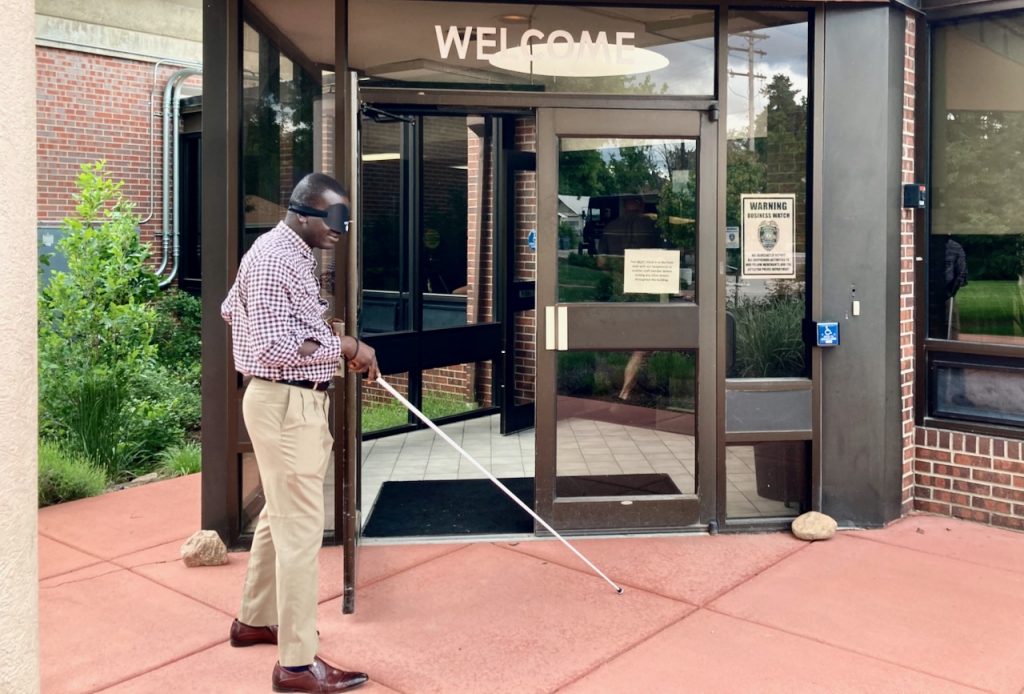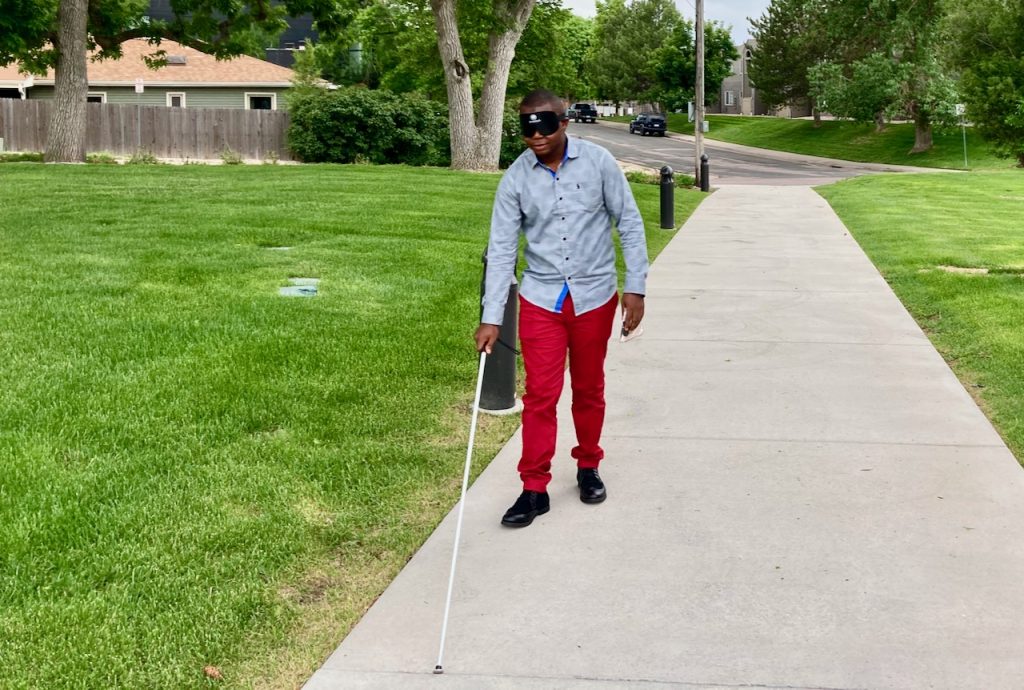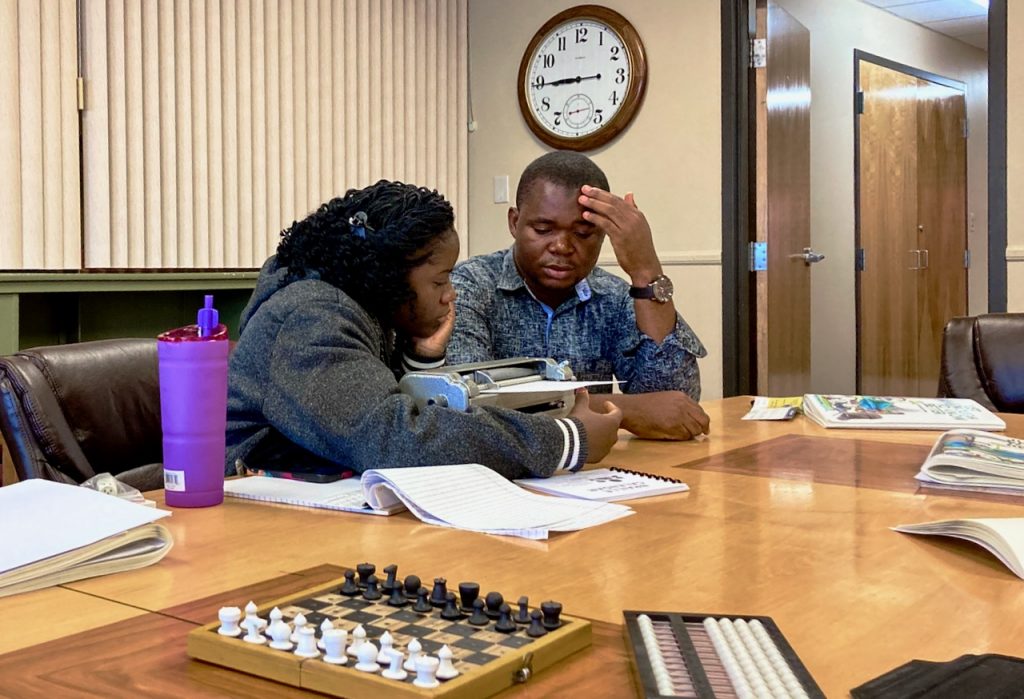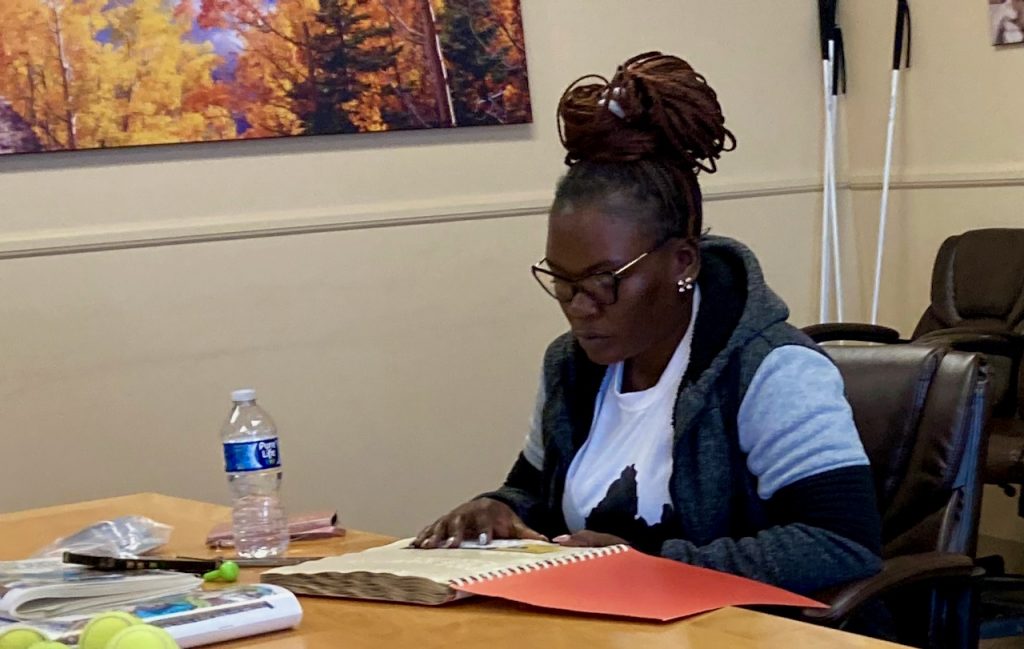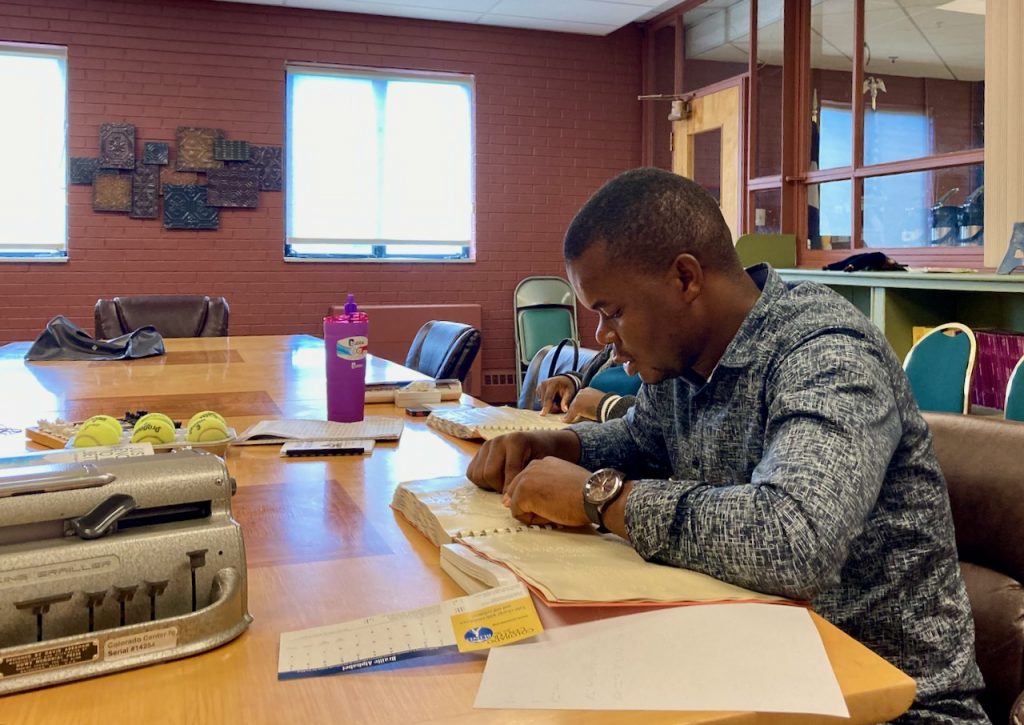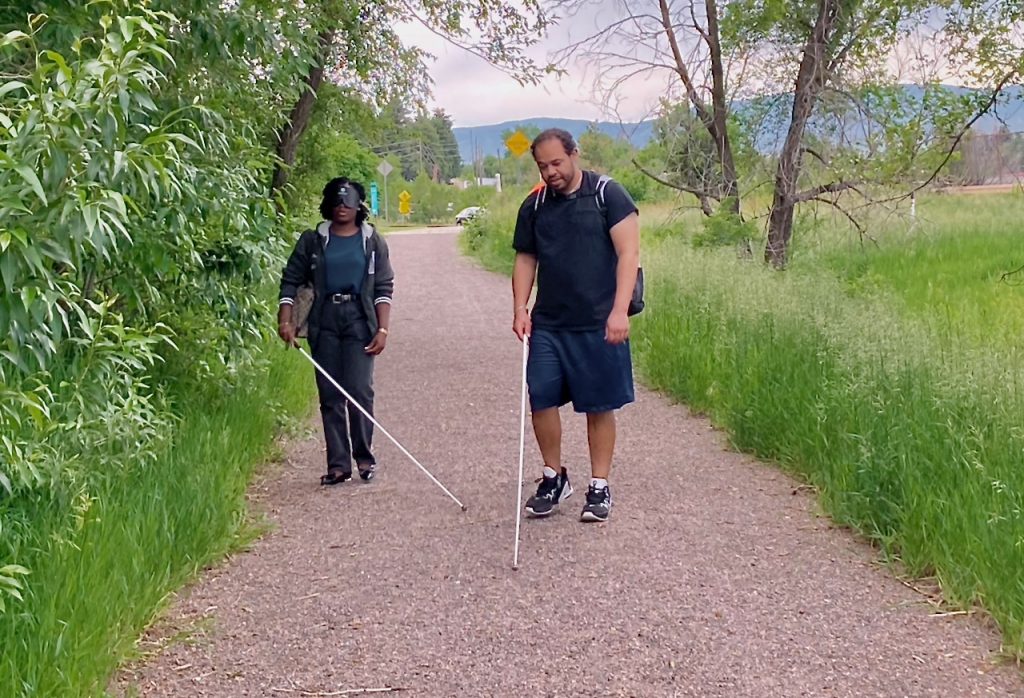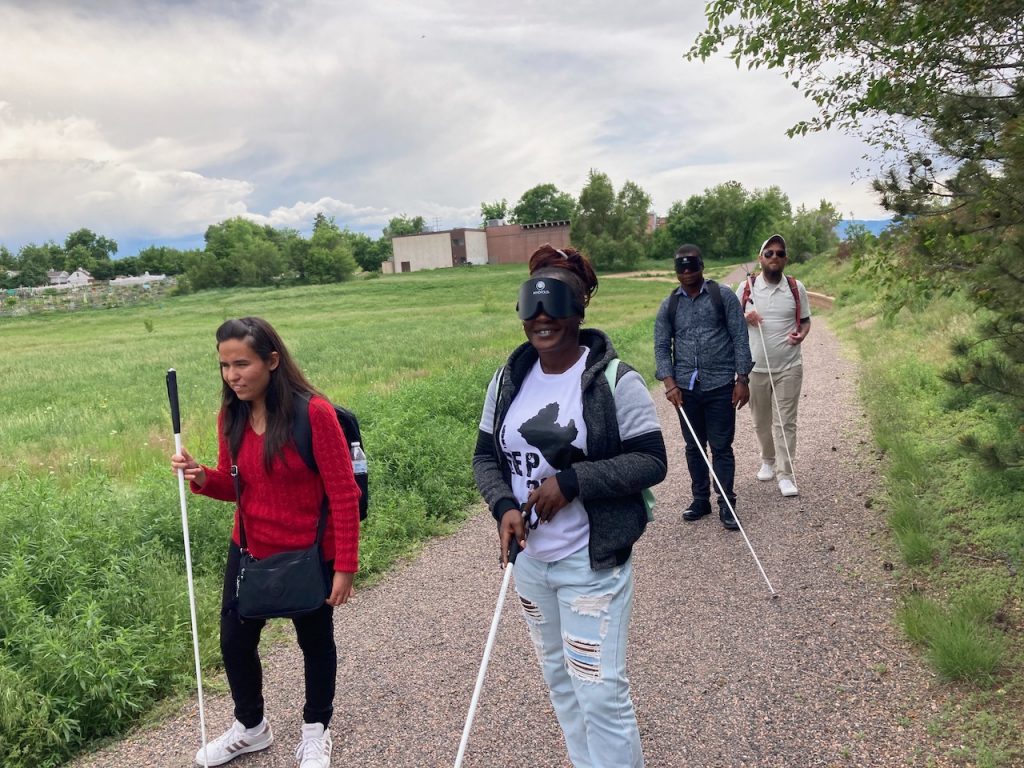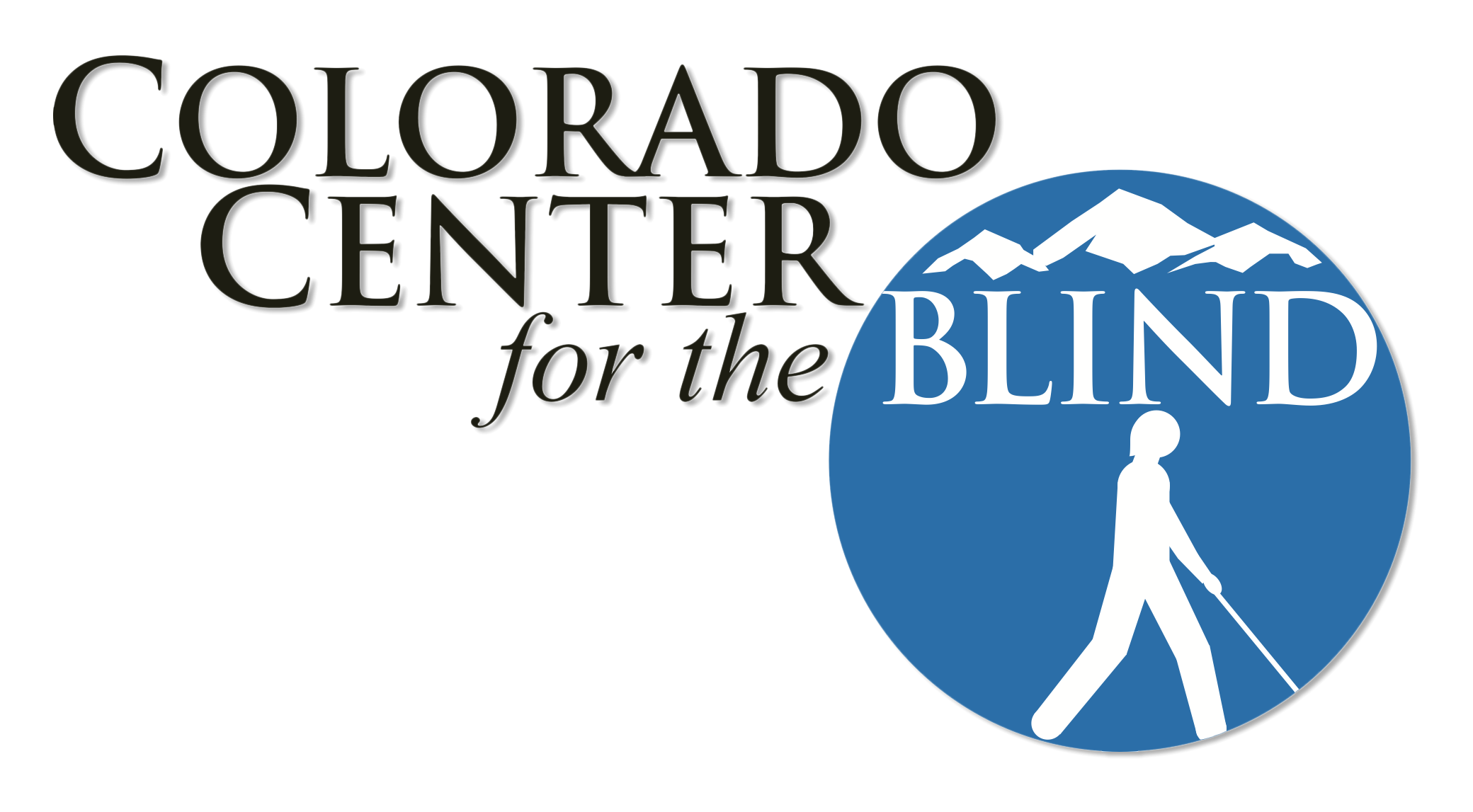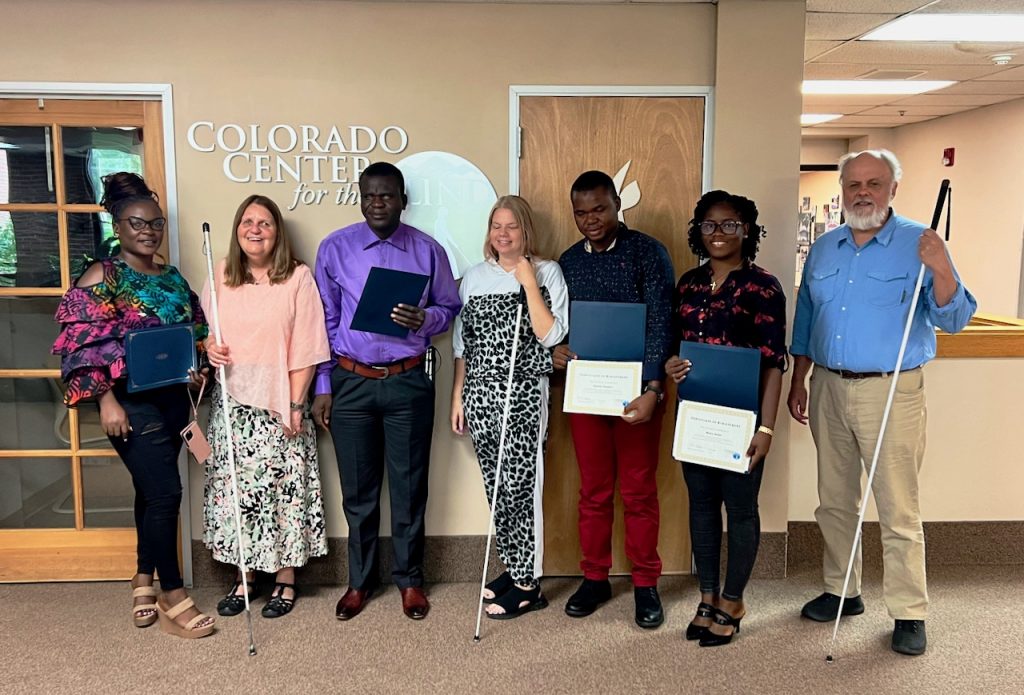
Late in the summer of 2022, an Uber driver named Ebenezer Norman dropped into the Center and asked to speak to Executive Director Julie Deden. Norman, as he prefers to be called, unfolded the incredible and inspiring story of his efforts to raise money to build a school in Liberia, his country of origin. Liberia is a small country on the west coast of Africa which was originally founded by former slaves from the United States. Norman, who was fortunate enough to come to the U.S. and attend Regis University, knows that good education is the future for children in Liberia and for the country as a whole.
Following many tribulations, including tragic losses which required that the school be rebuilt twice, his school, A New Dimension of Hope, is now teaching700 to 800 Liberian children.
This video tells Norman’s story and the tribulations of getting his school up and running.
Norman raises funds for his school. He has excellent administrators and educators, textbooks, a computer lab – all the things to build and maintain an outstanding education for all those children. But there was another, unexpected problem that troubled Norman and school officials. Blind children wanted to come to school, too, but they had no idea how to teach those children.
To the credit of Norman and the faculty at A New Dimension of Hope, they didn’t want to simply send those blind kids away. They wanted them to also have the hope that education can bring. They wanted to teach those blind children.
Norman found the Colorado Center for the Blind’s web site and, while out driving his Uber one day, made his way to the Center and talked with Julie Deden, and a new partnership for Norman’s school and our Center took hold. Julie, indeed all of us at the Center, were and still are moved by the thought of blind children wanting so desperately to come to school with their sighted siblings and friends, hungry for their chance to learn. We believe that blind people around the globe are our brothers and sisters, and blind children everywhere are our kids, too.
Last September, six educators from A New Dimension in Hope in Liberia and a partnering school in neighboring Ghana came for two weeks. We taught them all the Braille they could hold in that time, put learning shades on them and gave them lessons in traveling with a white cane, taught them hands on kitchen techniques, and generally did our level best to instill in our guests the notion that blind people can learn and become productive. Sadly, with few opportunities for blind people, many must turn to begging to support themselves in both Ghana and Liberia. Like Norman, these educators thought there could be more for those blind children, should be more for them.
Liberia’s is a different physical environment than what most of us have experienced in the United States. There are few paved roads and almost no sidewalks or intersections with traffic lights. Many people in the villages surrounding the school still cook over fires every day, so no microwaves with tactile markings or Instant Pots with Bluetooth controls. But knife skills and basic measurements and determining when food is fully cooked are still useful.
And so is the use of the white cane so that blind children can travel more independently and safely in their village and, soon, on their way to school.
For the past two weeks, we hosted another four educators from A New Dimension of Hope, including the school’s Principal, Suahibu Paasewe, nurse. Nokutula Ncube, and math teacher Miatta Kollie Once more, we stuffed them with Braille, including lots of slate and stylus practice, as well as some work on the Perkins Brailler. There was regular cane travel under learning shades and time in the kitchen again. In fact, our guests traveled back to the Center’s apartments with ITP students and instructors.
This group included the first blind person from Liberia we had the privilege to host. Noah Zowie Gibson teaches history at A New Dimension of Hope and another school. He is active in the United Blind Association of Liberia and spent all the time he could using our typing program so he could master the keyboard by touch. He finished more than half of the program’s 40 or so lessons in just two weeks!
For blind children everywhere, Braille is the bedrock of true literacy and lifelong learning. In a small, poor country struggling to come into the Internet age, Braille is even more critical, if that is possible. So, we are very grateful to the American Action Fund for Blind Children and Adults for donating 75 slates and styli to A New Dimension of Hope for the blind children to use at the school.
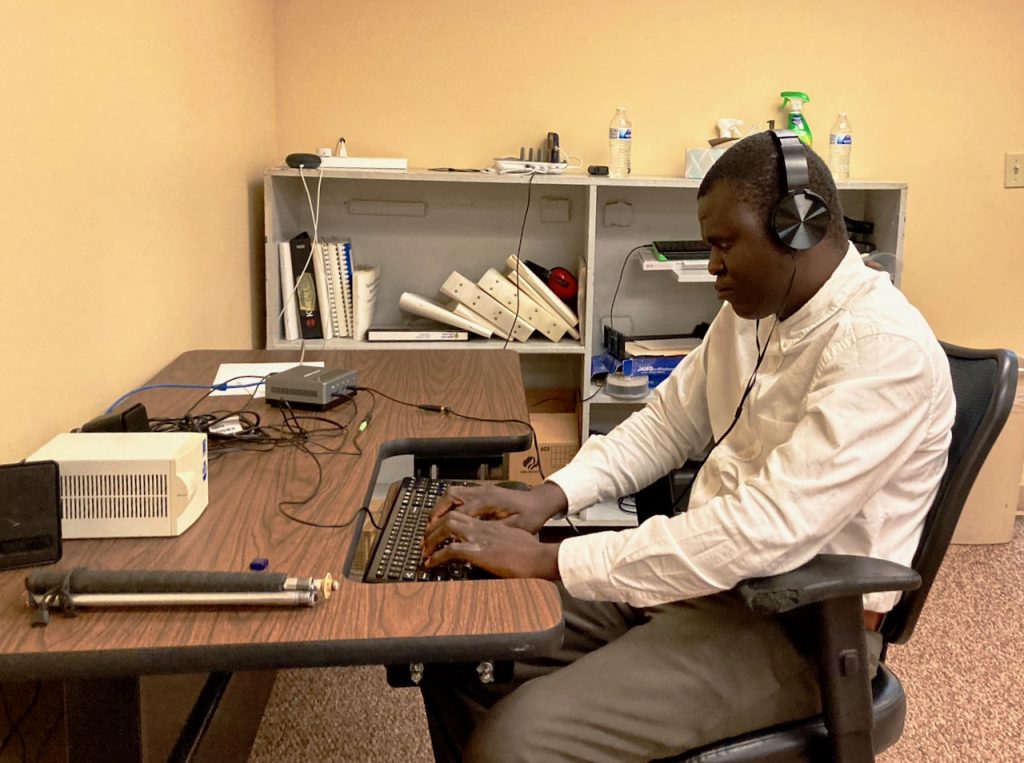
When it comes to technology access, we showed our Liberian guests how the free, open source screen reader, NVDA worked with a Windows laptop and on the internet. Since they have primarily Chrome Books in their computer labs, we invited Showe Trela from Colorado’s Blind & Low Vision Services to give a demonstration of the accessibility options with that device’s built-in Chrome Vox screen reader. And our own Charlie Acheson spent a couple of sessions with our guests discussing smart phones like the accessibility features available on Android phones, as inexpensive Android devices are most prevalent in Liberia.
“What struck me most was just how limited the opportunities were for blind people there,” says Julie Deden. “We’re happy to do these small things that can give those blind children greater opportunities in their lives.”
Nonvisual blindness skills are essential elements for success, of course. But that’s only one aspect of what we aspire to teach at the Colorado Center for the Blind, whether we are talking about our students, older blind participants, the kids in our Youth Programs, or sighted members of the community, because skills aren’t enough without belief – belief in the value of those skills, in yourself as a blind person, and in the potential of all blind people to learn, grow, and contribute. Belief is the secret sauce and, working with our guests from Liberia, it is obvious that they were open to embracing that belief and carrying it home to those blind kids who are so hungry to learn that they will walk to the school and wait, all the while hoping for their opportunity to learn.
For many of them, the next few months will bring the start of the new school term and an end to waiting.
